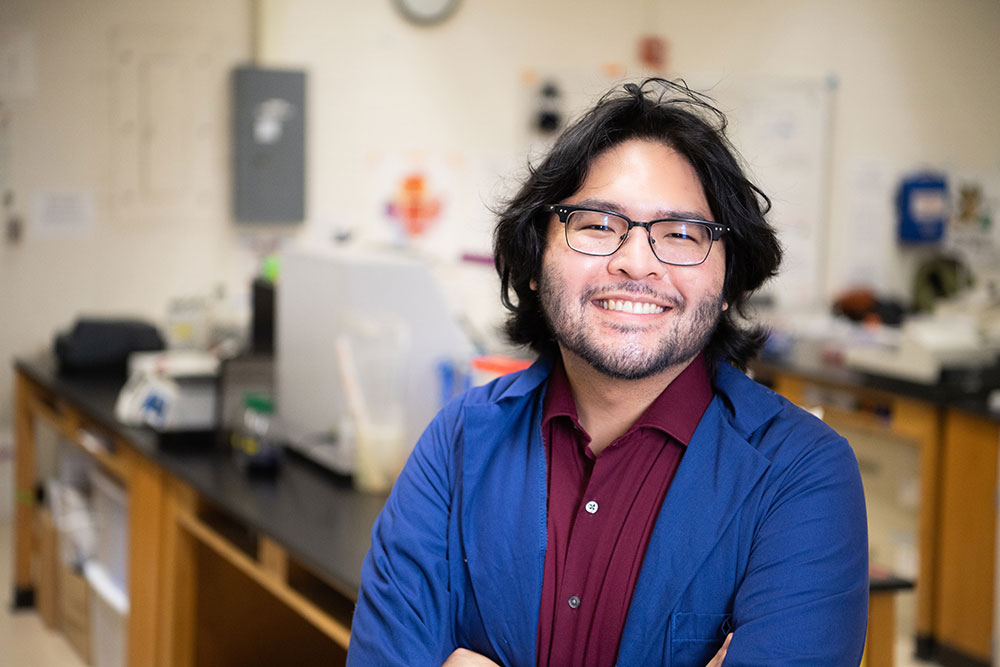
The Fulbright U.S. Scholar Program provides academics and professionals, who are U.S. citizens, the opportunity to go abroad and teach and/or conduct independent and guided research. Fulbright scholars range from college and university faculty and administrators to professionals, artists, journalists, scientists, lawyers, independent scholars, and many others. In addition to several new program models designed to meet the changing needs of U.S. academics and professionals, Fulbright is offering more opportunities for flexible, multi-country grants.
Recently we spoke with Tyler Pugeda, a 2021-2022 Fulbright Research Fellow in Germany. In this interview, Tyler discusses his background including his experience with deafness, why he pursued a Fulbright Research Fellowship in Germany, the experience and benefits of the program, his Fulbright application tips, and where he’s headed now after completing his Fulbright fellowship.
Tell us about your background.
Over the past two decades, I lived in the suburbs of Southern California, where I basked in the sun during all four seasons. I was always curious as a child, so I devoured books about science, anatomy, and astronomy, and excelled in science classes. But, I was also empathetic as a child, always feeling the pain and losses of my family members and friends, and I gave back to the community as a volunteer for charities. I was indecisive between two potential careers: a physician or a scientist — do I want to heal others, or do I want to discover cures? It was a defining moment of my childhood wonder, and it was exciting for me to be in a position where I could choose either road. As I am a deaf person, I wouldn’t deny that I had a difficult childhood — there was one pivotal moment when I withdrew from AP biology because of limited access to information, i.e., videos were not captioned and the ASL interpreter could not keep up with the pace of lectures to interpret clearly. While the experience was demoralizing, I was grateful to have gone through it because I became more resilient as a result.
As a deaf person, I have faced low expectations, prejudices, and scarce resources that limit my way of living. However, with tenacity and grit, I learned to advocate for myself, communicate my needs, and educate the community. By pursuing opportunities, I strive for a better life. Early on, I realized that I wanted to use my energy, resourcefulness, and creativity to create opportunities that improve the situation for others. Opportunities provide us with the chance to grow and learn — to become the best versions of ourselves. It is our responsibility to create the life we want for ourselves, and the best way to do that is by taking advantage of opportunities.
Tell us about your professional journey.
My sense of purpose emerged quite organically, and I felt a deeper desire to clarify my purpose. As a deaf person, my early years of suffering probably shaped my desire for life’s direction. If you know me really well, you would know that I am always seeking clarity in my life’s purpose and meaning. I would like to think that my struggles developed my value of excellence; in other words, I strive to lead excellence, both personally and professionally. Contrary to people’s beliefs, excellence is not the same as perfection; rather, it is about maximizing the quality of what I do, based on a series of mistakes and self-reflection. I am not a perfectionist, just to clarify.
In college, I gravitated toward activities focused on the betterment of humanity. I created the Ambassador Program to prepare individuals to fight for social justice in their community, founded the Global Deaf Education panel to promote an understanding of educational disparities, and provided art therapy to dozens of patients at Ronald Reagan UCLA Medical Center. As a post-baccalaureate pre-medical student at Johns Hopkins University, I led an initiative to advocate for closed captioning in classes, thereby increasing access to information for students with disabilities; and I delivered a TEDx Talk to energize people to go after their dreams despite self-doubt. These successes helped me build confidence and formal leadership skills and connected me to something bigger than myself.
Watch Tyler’s TEDx Talk: “An Aspiring Deaf Doctor: Making my Dream a Reality”
My interactions with patients convinced me that medicine would be the best way to combine my compassion for others, my interest in creative discovery, and my intellectual prowess. To develop my facilities as a scientist, I used every opportunity available to me, including my master’s degree in cell biology and healthcare entrepreneurship and research projects related to the development of bacterial vaccines and astronaut health. In addition, I applied for and received invitations to deliver oral presentations at national scientific conferences, and I presented a seminar on the joys and challenges of science to young children and visiting students.
What led you to the Fulbright Fellowship in Germany?
In addition to my scientific training in graduate school, my decision to pursue a Fulbright fellowship was deeply rooted in my desire to understand the way people live and think in other countries. I chose Germany as my host country as it is one of the world’s scientific powerhouses. I applied for and received a Fulbright grant to Germany at Charité – Universitätsmedizin Berlin, one of the top five hospitals in the world. I conducted research on Alzheimer’s disease, gaining insight into the importance and challenges of translational research. As a future leader in science and medicine, I am determined to help solve some of the world’s most pressing problems by enhancing and sustaining the impact of my future research.
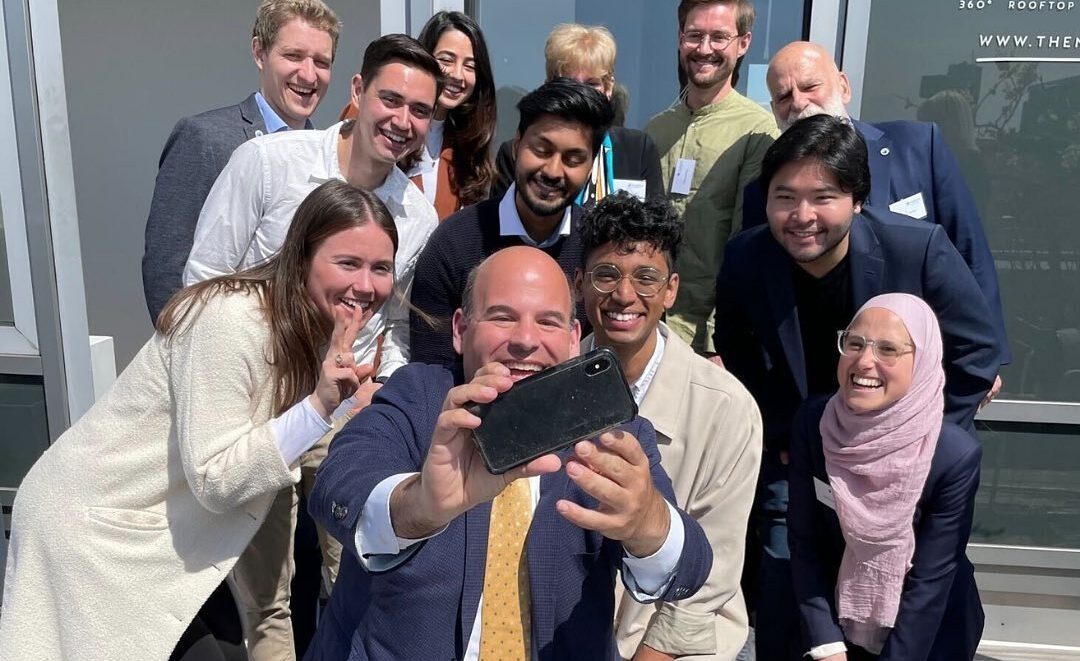
Can you describe what a week in the life of a Fulbright Research Fellow is like? How did this opportunity allow you to advance your career and expand your professional network?
My life as a Fulbright Research Fellow could be unpredictably structured every week in the neuroscience laboratory. On average, I would conduct seven experiments a week, which required me to handle multiple activities at once like running multiple experiments simultaneously, uploading the results, and attending lab meetings.
If I could plot a curve of my weekly schedule, it would look like a bell on an x-axis of 7 days and a y-axis of productivity level. On Sundays, I usually relaxed at home — but, interestingly enough, those days are legally required to be rest days in Germany. On Mondays, I liked to start slow and prepare for experiments. Tuesdays, Wednesdays, and Thursdays were the most productive days as I dealt with multiple experiments all day. We had lab group meetings on Tuesdays and Thursdays, whether it was for sharing weekly progress, journal club seminars, or discussions. Fridays were just casual, as I would reflect on the results and plan experiments for the following week.
The Fulbright experience not only confirmed my interest in leading a scientific career but also reminded me of how much I miss interacting with patients. It also reinforced my decision to pursue a dual MD-PhD degree. In the MD-PhD program, I would have a unique opportunity to learn how to balance my responsibilities as a clinician and a scientist and observe how research affects patient care directly.
My unforgettable adventures in Berlin and across Europe developed my confidence to interact with people who speak different languages and are from different cultures, and the Fulbright Fellowship advanced my vision of collaborating with labs around the world to establish research initiatives.
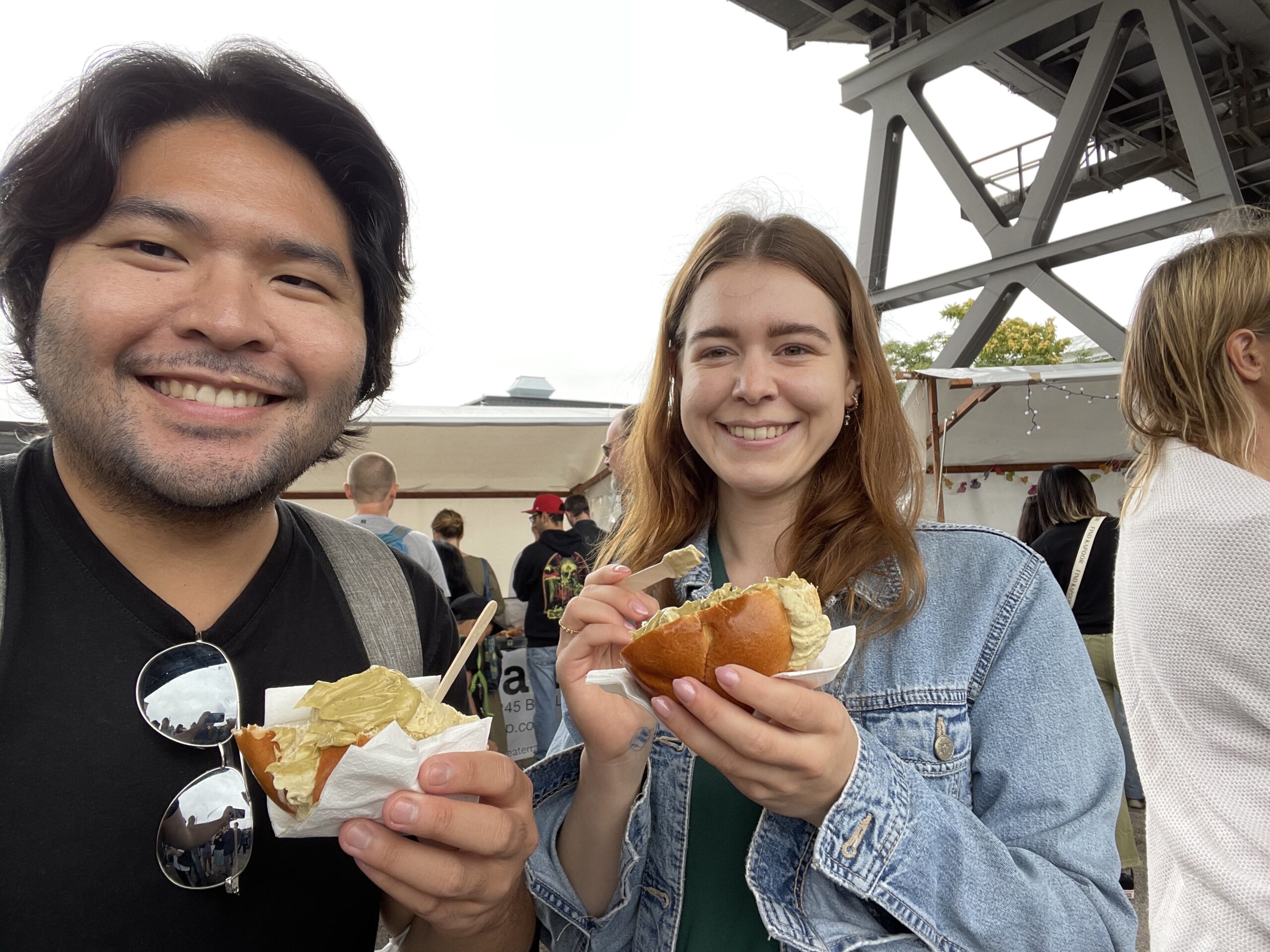
The Fulbright Fellowship offers U.S. students and professionals an opportunity to travel and gain international professional and academic experience in a variety of fields. Given your extensive STEM background, did you want to use your Fulbright to get new experience or go deeper into an existing area of interest?
Before I moved to Germany, my expectation was to gain a deeper understanding of Alzheimer’s disease, but I was also fascinated by stem cells and organ development. As an American, I knew that I was going to develop my intercultural communication skills in Germany — but never did I realize that my new experiences would profoundly impact me as a person, eventually. My interactions with scientists of different countries opened my mind to how science can truly be a collaborative endeavor in the world. I also learned to be culturally sensitive and mindful of how my words or actions may come off to people of different cultures, and this experience also taught me to take ownership of my growth as a culturally competent scientist. I also grew to appreciate how thoughtful communication could build mutual understanding and respect.
When I completed my project by the end of my Fulbright year, I was fortunate to have deepened my knowledge of microglia and Alzheimer’s disease, but also I became disillusioned about the research design: Alzheimer’s disease is really difficult to treat, and the scientific community still uses the animal models to make discoveries. Discoveries made on animals do not translate very well to clinical success in patient trials. However, while I focused on Alzheimer’s disease, I had a few opportunities to explore my interests. I participated in the stem cell grant competition, and I wrote a grant application on designing a three-dimensional human stem cell-derived microglia model. However, I did not get selected due to fierce competition. Despite this loss, I found this experience rewarding because it confirmed my interest in working with stem cells and organ development.
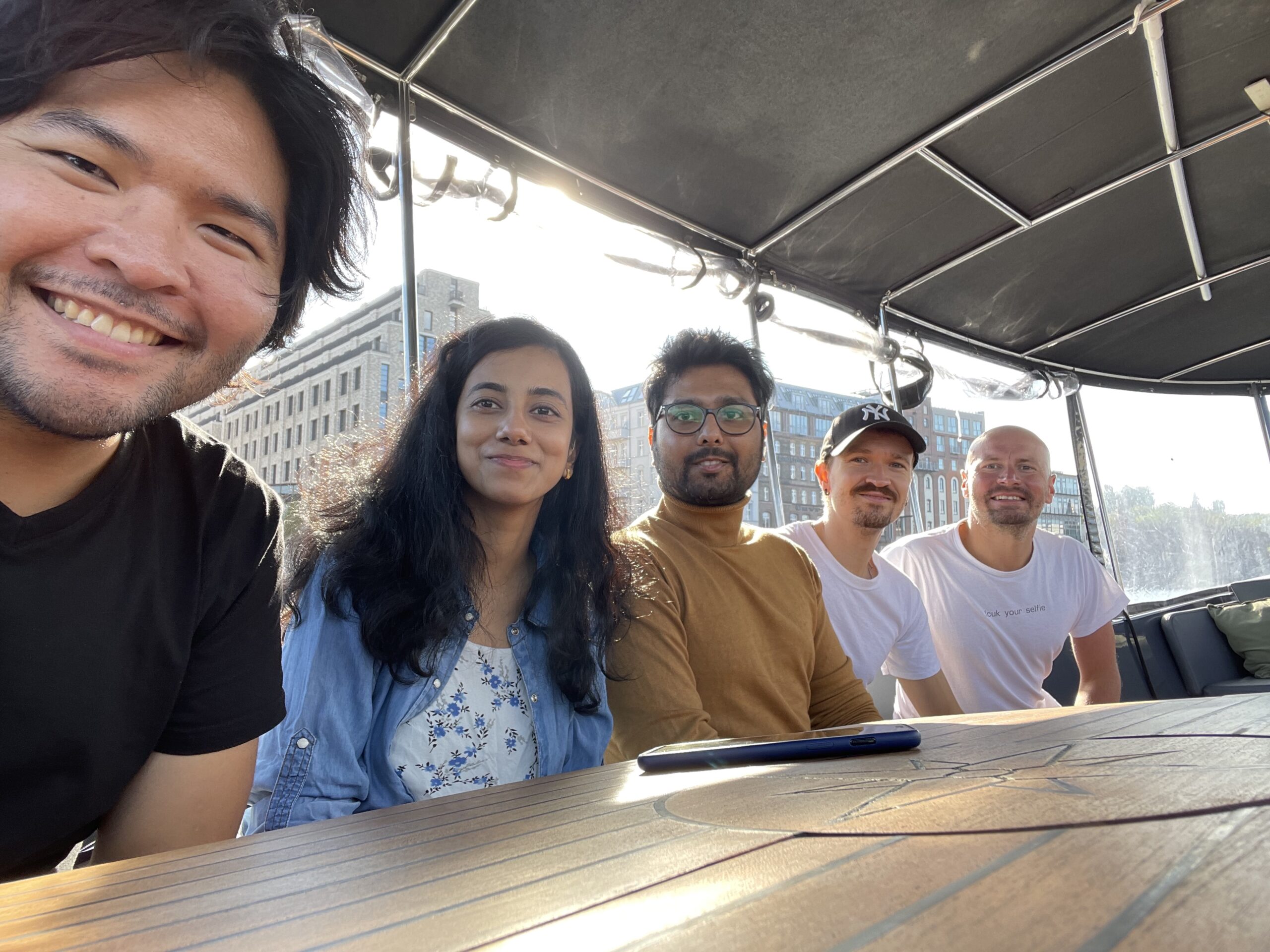
What are your future plans?
During my Fulbright year, my scholarly activities in stem cell research solidified my interest in stem cell-derived organ development. I intend to earn an MD-PhD degree at a university with a reputation for stem cell research. It is my dream to build a global biotechnology firm that focuses on developing stem cell-derived organs for vulnerable patients around the world.
To pursue my dream, I will relocate to Boston in January 2023 and begin my new position as Research Technician II in the Center of Engineering in Medicine & Surgery at Massachusetts General Hospital / Harvard Medical School, where I will focus on improving the quality of organ donations. As donated organs get discarded every year because they lose quality after being kept on ice for a few hours, the goal of my lab is to advance their already-groundbreaking technology to extend their preservation time. The hope is that this technology will increase the supply of donated organs and make it easier for hospitals to transport preserved organs in defiance of geographic barriers. This experience will be rewarding for me and bring me closer to my purpose.
In addition, Boston is one of the world’s biggest biotech hubs, and I am excited to take advantage of opportunities to learn about biotechnology entrepreneurship and develop skills necessary for bringing scientific discoveries to the market. As a future physician-scientist, I know that I will achieve my best self by pursuing those opportunities.
What advice do you have for others applying for the Fulbright Fellowship?
I have three pieces of advice. First, focus on aligning your values and goals with the selection criteria and mission of a fellowship. The conventional wisdom is that the selection process can be unpredictable. While it is true, I would like to add that a selection committee focuses on the fit. They generally try to envision how your values and goals reflect those of the fellowship. There are so many fine strategies for approaching your application, and it can be hard to choose one! Stick with a strategy that allows you to reveal your best self in an application.
Second, do not deprive yourself of other opportunities. Some fellowships are extraordinarily competitive, and you’re an impressive candidate who deserves to win an award. Applying for fellowships and scholarships can be draining, but you should still consider applying for anything that will help you reach your goals. The Fulbright Fellowship, while a prestigious honor, should not be your only means of meeting your goals.
Even though it can be daunting to apply for multiple fellowships at once, it’s important to diversify your opportunities. When you keep track of fellowships and scholarships, do not descend into a doomed state of analysis paralysis. It is easy to overthink your application strategy for each fellowship/scholarship on your list, and it makes it easy to procrastinate on writing. Those applications really deserve your time and attention, and you will never get it right the first time, no matter what. Just write a draft, edit it, re-write, get input from others, and the cycle continues until your application becomes a remarkable read.
Third, awards are external validation of our merits and talents, yes, but your inner peace comes first. Having a strong sense of self is critical to the stability of your inner peace. When you work on a Fulbright application (or any general application), the process may seem tedious and time-consuming, but it has a hidden purpose: finding your best self. While it’s good to focus on winning an award, it is much better to gain clarity in what you really want to do — and how you want to be in the future. When you gain a significant reflection of your own values, experiences, and skills, you will feel more self-assured and self-confident enough to push through the disappointing rejections. My CV of rejections is certainly much longer than my CV of successes. With a strong sense of self, I just focus on trying again and again until a door opens for me. Knowing who you are and what you want is so much more rewarding than winning a fellowship. Embrace the application process and push yourself to find the best version of yourself.
As a Fulbright Fellow, Tyler Pugeda investigated Alzheimer’s disease at Charite-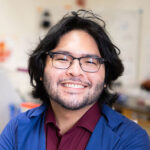
© 2023 ProFellow, LLC, all rights reserved.